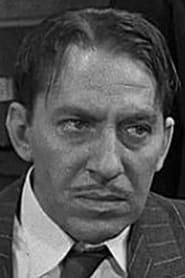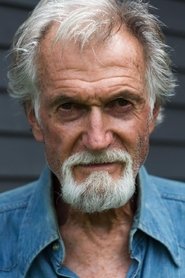It has always intrigued me how cinema reflects its times--nothing demonstrates that to me more passionately than the doomsday scenario of nuclear apocalypse in movies, particularly during the times of extreme political crisis between the USA and then-USSR in both the 60's and 80's.
'This Is Not a Test' was director Fredric Gadette's lone work as director, producer and scriptwriter, and he's able to make, with a small set, a truck, a few cars, 17 no-name actors and a dog, an intriguing and moderately suspenseful genre entry. He utilizes a few nice gimmicks to make it more enjoyable--a murderer on the loose, a couple who should have divorced probably a decade ago, a lost rifle--some hilarious parts (what good is canned grapefruit juice if you don't have a can opener, and what 'discount world' sells mink coats?), and all tolled, it's a fine, low-budget 73 minutes that make me honestly wish Mr. Gadette had made a lot more movies.
(Cinephiles, this is readily available for a fine price in Mill Creek's 50-film set called 'Nightmare Worlds'. Don't say I didn't tell ya!) =)
KING OF THE SWITCH ENDINGS
A highway patrolman stops a few cars for an emergency. "This is Not a Test" refers to that emergency. It isn't a test. It's a real nuclear attack.
A motley group of seemingly ordinary people deal with the fact that they are in what they consider "Ground Zero", smack dab between some obvious targets.
Except there's a wild card in the mix. One of the people in this story is a homicidal maniac. And that's where the switch ending comes in. Things are not what they seem.
A very low budget film, with the biggest name being Ron Starr, whose only other big film was Peckinpah's confirmed masterpiece "Ride the High Country".
This film delivers, though, in the end, although there is a suicide during the movie that seems a bit contrived, but other than that, this is a very good screenplay, and it's good drama and good theater. Although there isn't a lot of action, there is a lot of animation and the appearance of action that keeps the viewer glued to the story.
I suppose the writing was on the wall for this with the opening titles. No mention at all of the acting "talent" but at least four of Frederic Gadette who appears to have done all but make the coffee. The plot sees a single police officer "Colter" (Seamon Glass) being charged with operating a roadblock on a remote highway. That's my first problem. He is stop both directions at the same spot - there is no accident, he is not inspecting the vehicles and when asked why by the surprisingly high number of travellers, he could hardly be less informative. Anyway, it soon transpires that the USA is under a nuclear attack and the film now attempts to deal with just how folks would deal; in the middle of nowhere, in the middle of the night, with that information. The budget went on the coffee, if there was one. It is shockingly badly lit; the dialogue is barely audible and the characterisations - especially toward the end of this overlong 80 minute endeavour - fall flat every time. The acting is pedestrian, and what could have provided an interesting insight into human behaviour when facing imminent annihilation, just turned into a pretty badly presented affair with little to redeem it. It's not a bad idea, but the execution is really very poor.






